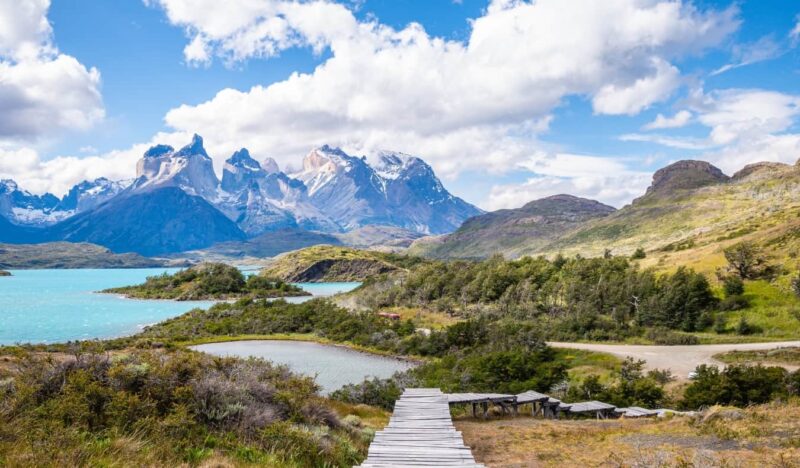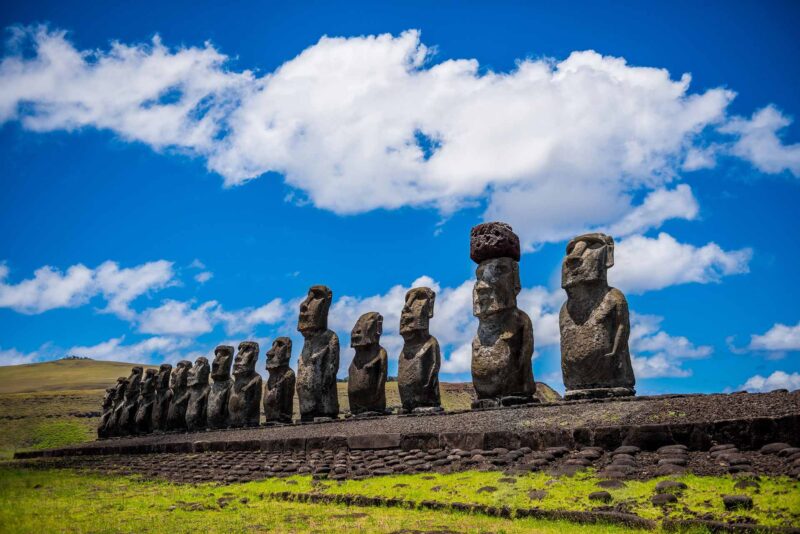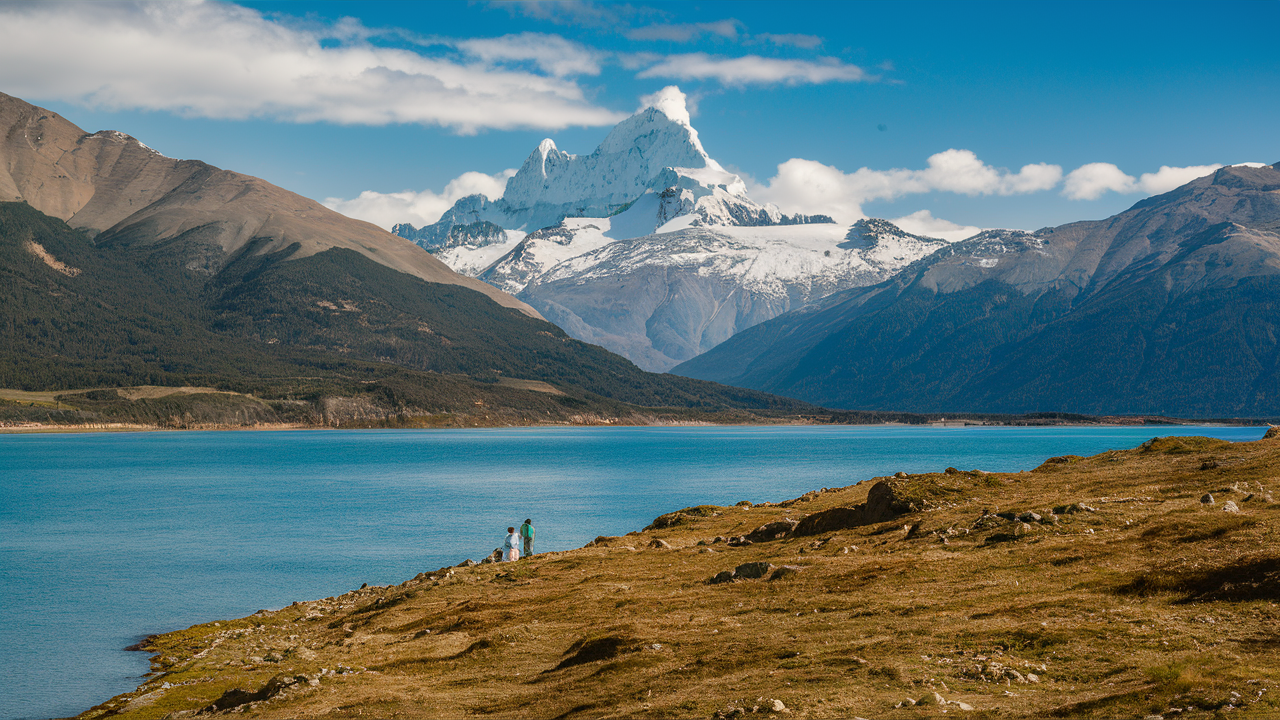Did you know that Chile has seen a staggering 36% increase in violent crime rates over the past three years? This startling statistic underscores the growing security concerns facing travelers to this South American destination. As an American citizen planning a trip to Chile, this news may give you pause, but it’s crucial to be informed and take the necessary precautions to ensure a safe and enjoyable journey.
The U.S. Department of State has issued a Chile Travel Advisory, urging U.S. citizens to exercise increased caution when traveling to the country due to the ongoing risks of crime and civil unrest. From street crimes like muggings and pickpocketing to more violent incidents such as assaults, homicides, and carjackings, the security situation in Chile has become increasingly volatile, particularly in major cities and tourist hotspots.
Key Takeaways
- The U.S. Department of State has issued a Level 2 Travel Advisory for Chile, urging increased caution due to crime and civil unrest.
- Petty crimes like pickpocketing and theft are common, while violent crimes, including assaults and carjackings, have also risen in recent years.
- Large-scale demonstrations and protests, which can turn violent, occur regularly in Santiago and other cities, often disrupting transportation.
- Travelers are advised to take precautions, avoid demonstrations, and enroll in the Smart Traveler Enrollment Program (STEP) to receive security alerts.
- Understanding the risks and taking appropriate safety measures can help ensure a safe and enjoyable trip to Chile.
Overview of Travel Risks in Chile

Visitors to Chile should be aware of several potential travel risks, including elevated crime rates, civil unrest, and occasional terrorism threats. Understanding these challenges can help travelers take appropriate precautions and have a safe, enjoyable experience in the country.
Crime Rates and Common Incidents
Petty crimes, such as pickpocketing, purse snatching, and thefts from vehicles, are common in major cities like Santiago, Calama, San Pedro de Atacama, Pucon, Iquique, Valparaiso, and Vina del Mar. Thieves often use distraction techniques and may work in pairs or groups. Violent crimes, including armed assaults and robberies, have also increased in recent years, with tourists being targeted, even during the daytime. Carjackings can occur, especially as drivers are entering or exiting their vehicles.
Civil Unrest and Demonstrations

Politically motivated violence has occurred in the Araucania and Biobio regions of southern Chile, with protesters engaging in violent protests, barricades, looting, arson attacks, and fatal shootings. Demonstrations and strikes also occur regularly in Santiago, Valparaiso, and Concepcion, often leading to roadblocks, public transportation disruptions, and confrontations with police.
Terrorism and Explosive Threats
Explosions of small-scale devices have occasionally occurred in Santiago, targeting transportation hubs, churches, government buildings, businesses, banks, and ATMs. While the threat of terrorism is relatively low in Chile, travelers should remain vigilant and report any suspicious activity to local authorities.
Chile Travel Advisory
The U.S. Department of State has issued a Level 2 Travel Advisory for Chile, urging U.S. citizens to “exercise increased caution” when traveling to the country due to the ongoing risks of crime and civil unrest. The advisory recommends several key safety precautions to be taken by travelers in Chile.
U.S. Department of State Travel Advisory Level
The Level 2 Travel Advisory for Chile highlights the need for U.S. travelers to be vigilant and take appropriate measures to ensure their safety. This advisory underscores the U.S. Department of State’s concerns about the elevated levels of crime and civil unrest present in parts of the country.
Key Safety Precautions
According to the U.S. Department of State travel advisory, travelers in Chile should adhere to the following key safety precautions:
- Do not leave luggage unattended, even in locked vehicles
- Always carry a copy of your U.S. passport and visa (if applicable), while keeping the original documents in a secure location
- Avoid demonstrations and large gatherings, and follow the instructions of local authorities
Enrolling in the STEP Program

To further enhance their safety and facilitate emergency assistance if needed, the U.S. Department of State advises U.S. travelers in Chile to enroll in the Smart Traveler Enrollment Program (STEP). This program allows the U.S. government to better assist citizens in the event of an emergency, natural disaster, or civil unrest.
Staying Safe in Chile
To avoid becoming a victim of petty crimes in Chile, travelers should be wary of strangers approaching them, as they may attempt to distract and rob them. Visitors should keep their belongings, including passports and other travel documents, secure at all times, and avoid carrying large amounts of cash or displaying signs of affluence.
Certain areas, such as Cerro Alegre in Valparaiso, Cerro San Cristobal park in Santiago, and popular tourist neighborhoods in Santiago, are known to have higher rates of Chile petty crimes and Chile scams, and should be navigated with caution, especially after dark.
Areas to Exercise Caution
Travelers in Chile should exercise extra caution in certain areas known to have higher levels of Chile tourist safety concerns. These include the popular tourist neighborhoods in Santiago, as well as Cerro Alegre in Valparaiso and Cerro San Cristobal park, where Chile petty crimes and scams targeting visitors are more prevalent, especially after dark.
Adventure Tourism Safety
For Chile adventure tourism activities, such as volcano tours, desert expeditions, and water sports, travelers should obtain detailed information about the activity and the environment, ensure they are physically fit, stay on marked trails, and bring sufficient equipment and supplies. It is also recommended to buy travel insurance that includes helicopter rescue and medical evacuation to ensure their safety and well-being during these thrilling experiences.
Transportation and Road Safety
Navigating Chile’s transportation system requires careful consideration, as both driving conditions and public transit pose unique challenges for travelers. Understanding these dynamics can help ensure a safer and more enjoyable journey.
Driving Conditions and Road Hazards
The roads in Chile’s urban areas are generally well-maintained, but driving on secondary roads or in mountainous regions can be treacherous. Factors such as poor lighting, lack of guardrails, inadequate road maintenance, and unpredictable weather conditions can all contribute to an increased risk of accidents. Compounding the issue, Chilean drivers are often known for their reckless and aggressive behavior, resulting in a high rate of collisions, especially in the capital city of Santiago.
Using Public Transportation Safely
When relying on Chile’s public transportation system, travelers must remain vigilant and keep a close eye on their belongings. Criminal groups have been known to target tourists on buses, the metro, and at transportation hubs, so it is crucial to stay alert and secure valuables at all times.
Taxi Safety Guidelines
To ensure a safe and reliable taxi experience in Chile, it is recommended to book and prepay the fare inside the airport terminal. When hailing taxis in cities, use only designated taxi stands, as unauthorized vehicles have been known to engage in credit card fraud and overcharging unsuspecting passengers.

Conclusion
The Chile Travel Advisory issued by the U.S. Department of State highlights the ongoing risks of crime and civil unrest in the country, urging U.S. citizens to exercise increased caution when traveling to Chile. Petty crimes, such as pickpocketing and purse snatching, as well as violent crimes, including assaults and carjackings, are a significant concern, especially in major cities and tourist areas.
Also read: Costa Rica Travel Advisory
Demonstrations and strikes can also disrupt travel and lead to confrontations with police. To stay safe, travelers should take precautions, such as keeping valuables secure, avoiding demonstrations, and using public transportation and taxis cautiously. Enrolling in the STEP program and purchasing comprehensive travel insurance are also recommended.
By being informed and taking appropriate safety measures, U.S. travelers can enjoy their time in Chile while mitigating the risks. The Chile travel advisory, focusing on the country’s travel risks and safety guidelines, serves as a valuable resource for those planning a trip to the region.
FAQ
What are the key safety concerns for travelers to Chile?

The main safety concerns in Chile include high rates of street crime such as muggings, pickpocketing, and theft, as well as an increase in violent crimes like assaults, carjackings, and residential break-ins. Large-scale demonstrations and protests that can turn violent also pose a risk, especially in major cities like Santiago.
What precautions should travelers take to stay safe in Chile?
Travelers should take several key precautions, including not leaving luggage unattended, carrying copies of their passport and visa, avoiding demonstrations and large gatherings, and enrolling in the Smart Traveler Enrollment Program (STEP) to receive security alerts. It’s also important to be cautious of strangers, keep valuables secure, and avoid displaying signs of affluence.
What areas of Chile are considered high-risk for travelers?
Certain neighborhoods in major cities like Santiago, Valparaiso, and Iquique are known to have higher rates of crime and should be navigated with caution, especially after dark. Travelers should also exercise increased caution in the Araucania and Biobio regions of southern Chile due to the risk of politically motivated violence.
How can travelers stay safe when using transportation in Chile?
When driving in Chile, travelers should be aware of poor road conditions, reckless driving, and the risk of accidents. When using public transportation, such as buses and the metro, travelers should keep a close eye on their belongings and only use designated taxi stands, as unauthorized taxis have been known to engage in credit card fraud and overcharging.
What should travelers do to prepare for adventure tourism activities in Chile?
For adventure tourism activities like volcano tours, desert expeditions, and water sports, travelers should obtain detailed information about the activity, ensure they are physically fit, stay on marked trails, and bring sufficient equipment and supplies. It is also recommended to purchase travel insurance that includes helicopter rescue and medical evacuation.

